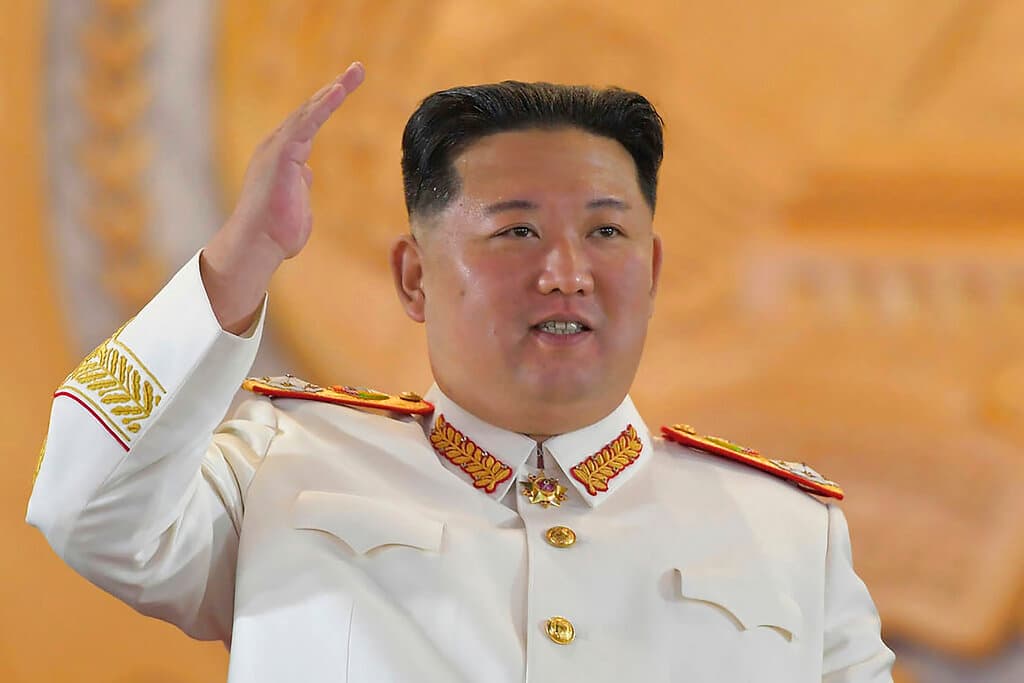Will South Korea’s Yoon Pursue a Hard Line as a Counter to Putinism in Northeast Asia?
It’s an open question as Russia’s misfortunes show the fallacy of expansionism.

Will South Korea’s president, Yoon Suk-yeol, prove tough enough to play a decisive role in northeast Asia? It looks like his moment is now as the debacle confronting President Putin in Ukraine provides an object lesson to Northeast Asia dictators with their eyes on conquest of democracies that they would like to conquer.
North Korea challenged Mr. Yoon again Tuesday, firing an intermediate-range ballistic missile on the longest-ever flight recorded by a North Korean missile. The missile traversed Japan and landed in the northern Pacific about 2,600 miles from where it was launched after soaring about 600 miles above earth.
Mr. Yoon vowed “such reckless nuclear provocations will be met with a resolute response from our military and our allies,” and South Korean and American warplanes dramatized the point with a bombing exercise against an island in the Yellow Sea off the South’s west coast.
Four American F16’s and four South Korean F15’s bombarded the island in an exercise that South Korea’s military command said demonstrated “their will to respond sternly to any North Korean threats” and “the alliance’s overwhelming force.”
The assistant secretary of state for East Asia and the Pacific, Daniel Joseph Kritenbrink, warned America would “take steps to deter North Korean provocative power.” He added “no one should doubt our resolve in terms of pursuing sanctions and other authority.”
For Mr. Yoon, the latest North Korean missile test justified his hard line against both China and North Korea at a time when Russia’s misfortunes show the fallacy of their own expansionist designs.
China’s president, Xi Jinping, anticipating his election to a third five-year term as general secretary of the Chinese Communist Party, probably has enough sense not to launch an invasion of the independent island of Taiwan, which Beijing considers its own province, right away.
That doesn’t mean, however, that Mr. Xi will abandon the dream. Mr. Yoon, reluctant to offend China by siding with Taiwan, will have to decide whether to declare his firm opposition to China’s claims to Taiwan, which has emerged as a sterling avatar of democracy.
Undoubtedly North Korea’s leader, Kim Jong-un, dependent on China’s largesse for survival, has much to learn from Mr. Putin’s mistakes.
Clearly Mr. Kim had hoped that Russia’s war in Ukraine would serve as an example for fulfilling the dream of his grandfather, regime and dynasty founder Kim Il-sung, to subdue the North’s powerful, wealthy neighbor, South Korea.
That’s the inference of a succession of North Korean missile tests, including two just before and two just after Vice President Harris’ South Korea visit, during which she waved a rhetorical fist at the North from Panmunjom where the Korean War armistice was signed in 1953.
Mr. Kim’s missile tests add to the urgency of standing firm against the North. Seoul’s success in matching North Korean short-and-mid-range missiles was evident on the South’s Armed Forces Day last weekend at which multiple rocket launchers, ground-to-ground tactical ballistic missiles and the Hyunmoo-II and III missiles, capable of reaching any corner of North Korea, were on display.
No one doubts the North’s remarkable success in developing missiles, but it’s doubtful if any of them would be more capable than South Korea’s models of an accurate strike given the South’s superior technological expertise.
Mr. Kim undoubtedly is aware of the overpowering odds he would face were he to deploy any of his missiles for anything but tests of questionable success. As an American army officer in Seoul told me, “Well, they’ve shown they can hit the water” — a sardonic allusion to the fact that the North’s missiles have landed in the sea.
The American base at Camp Humphreys, headquarters of U.S. Forces Korea and the United Nations Command, 68 kilometers south of Seoul, and nearby Osan Air base, headquarters of the U.S. Seventh Air Force, might be sitting ducks for North Korean missiles, but their counter-missile systems and the North’s ineptitude make them difficult targets.
All of which is why Mr. Kim relies on his nuclear warheads as the North’s ultimate weapon in a showdown. The North’s nukes, though, may not be all that effective considering it’s not certain they know how to fix them to the tips of missiles.

